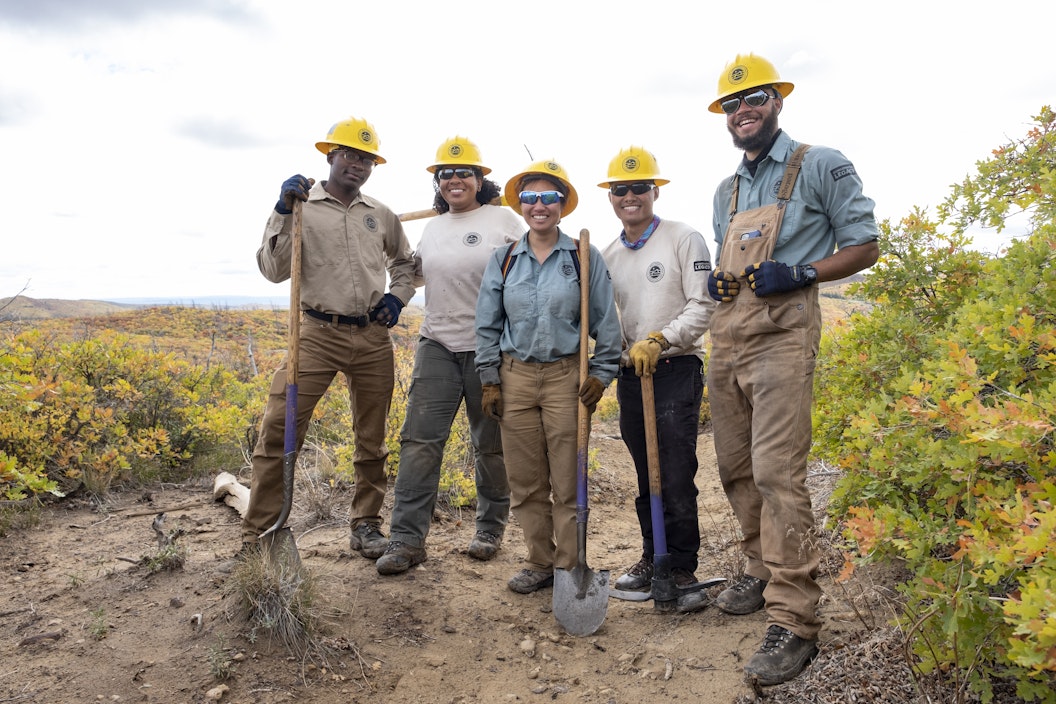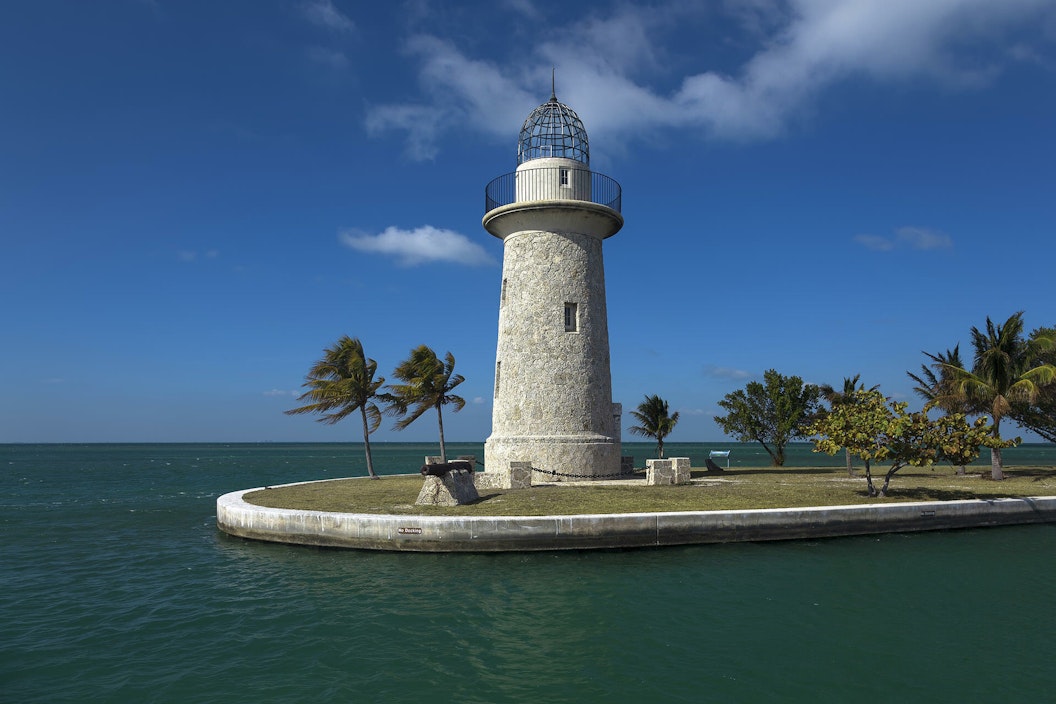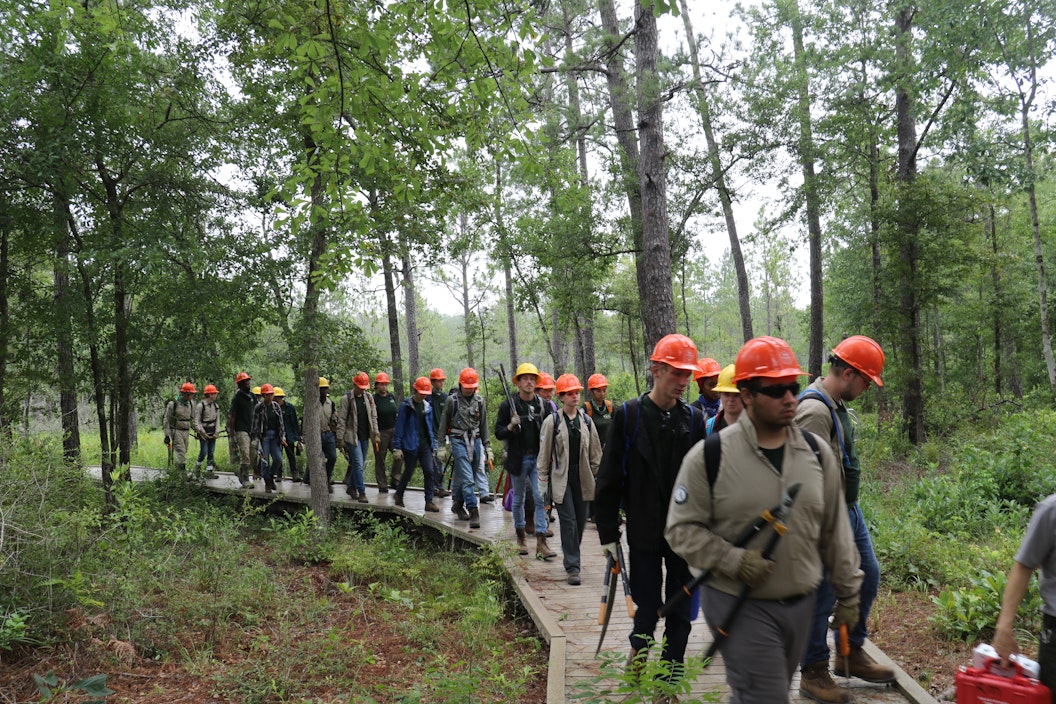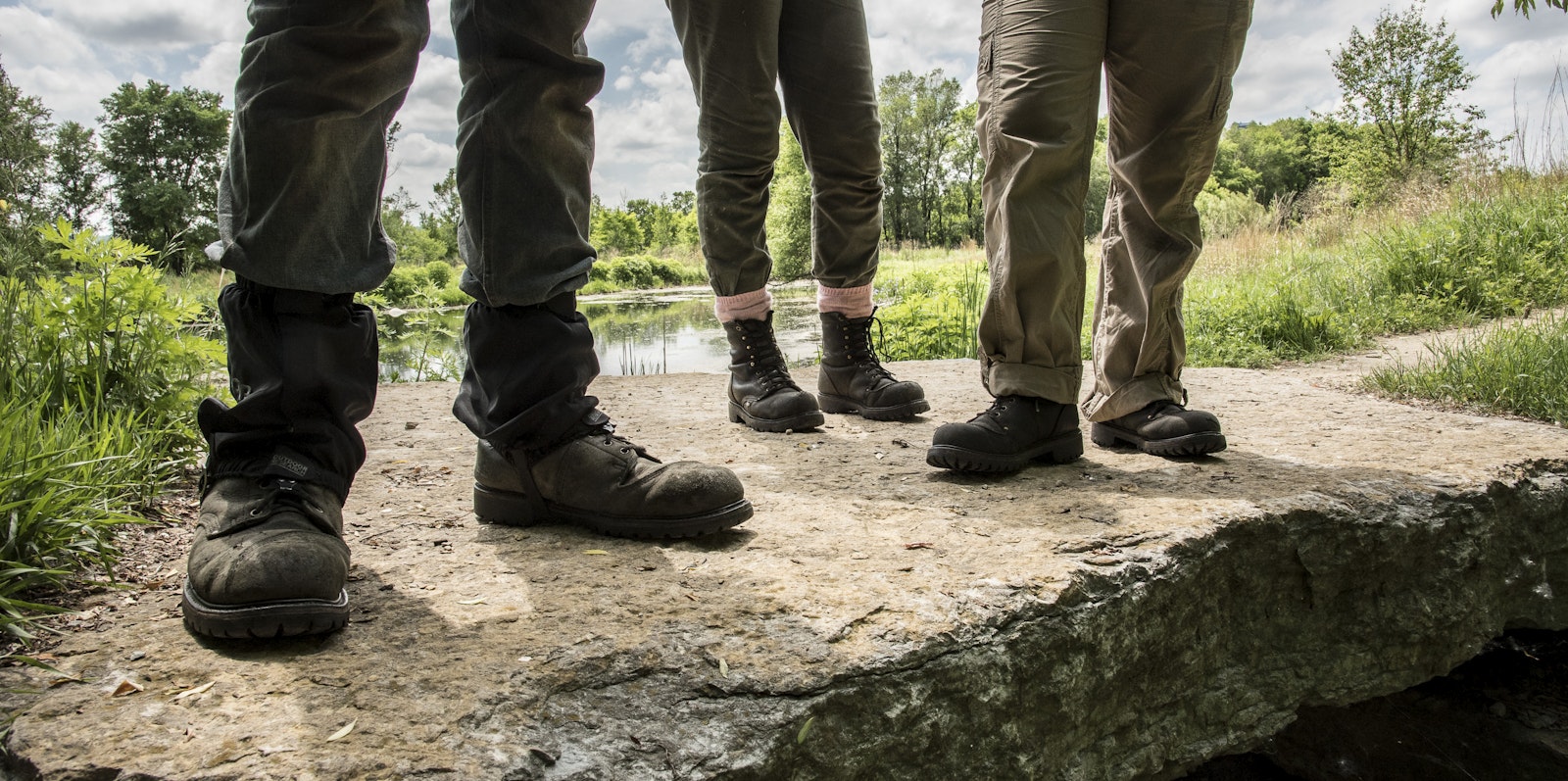Sea Sisters
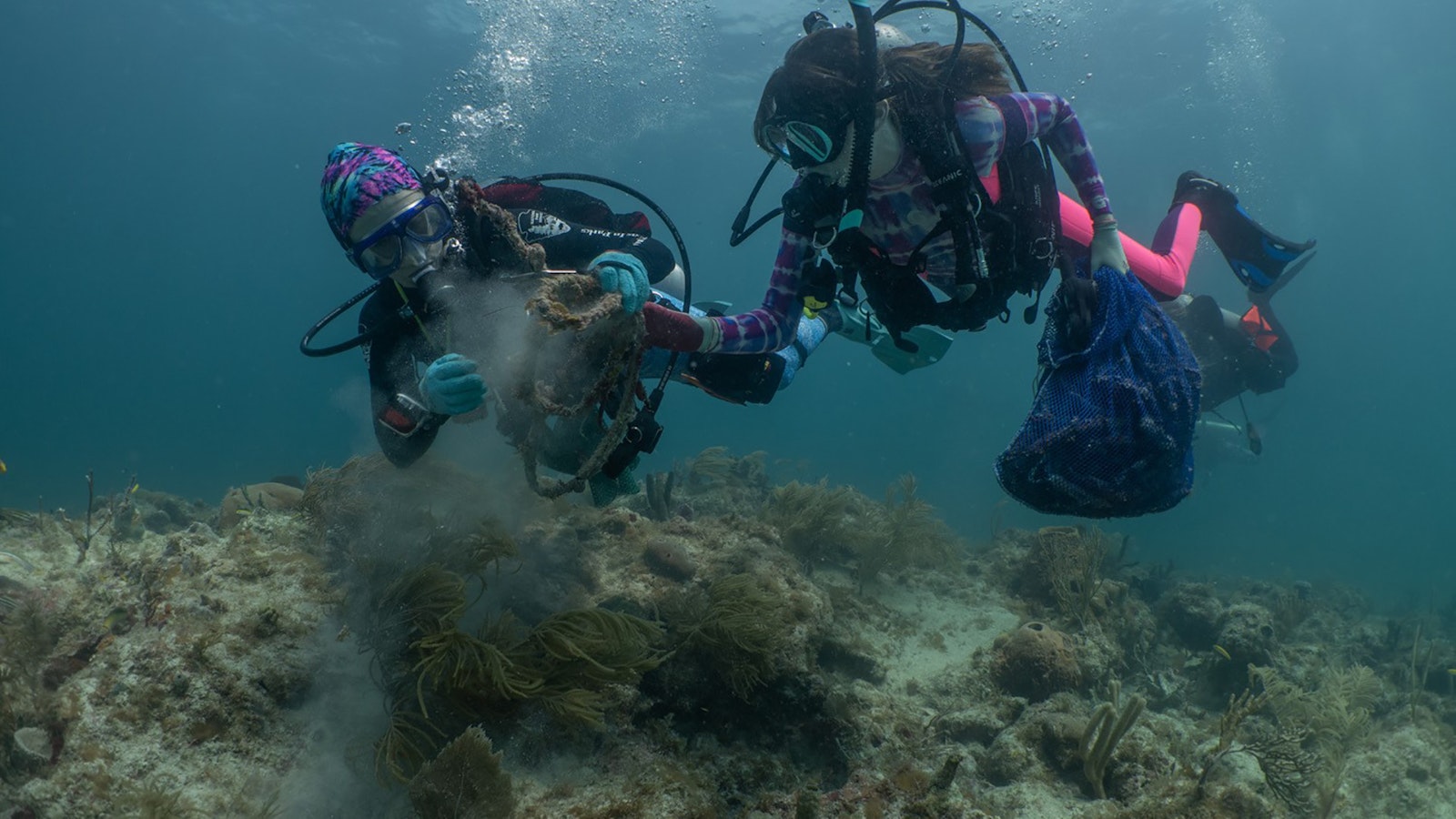
.
.
More than five million acres of our National Park System is hidden from view … unless you have a scuba diving certification.
Some of our most meaningful park locations – the World War II era remains of the U.S.S. Arizona at Pearl Harbor, for example – are underwater. And the archaeologists at the National Park Service Submerged Resources Center (SRC) are tasked with studying and protecting these places.
Led by Chief Archaeologist Dave Conlin, the SRC’s dive teams locate and document underwater artifacts. They then share their discoveries with park staff and the public.
But Conlin's small team can’t be everywhere at once – so with funding from the National Park Foundation (NPF), the SRC is launching a new service corps to protect more of our parks’ underwater treasures. In partnership with the WAVES Project (Wounded American Veterans Experience Scuba), the SRC is training women veterans to participate in diving missions.
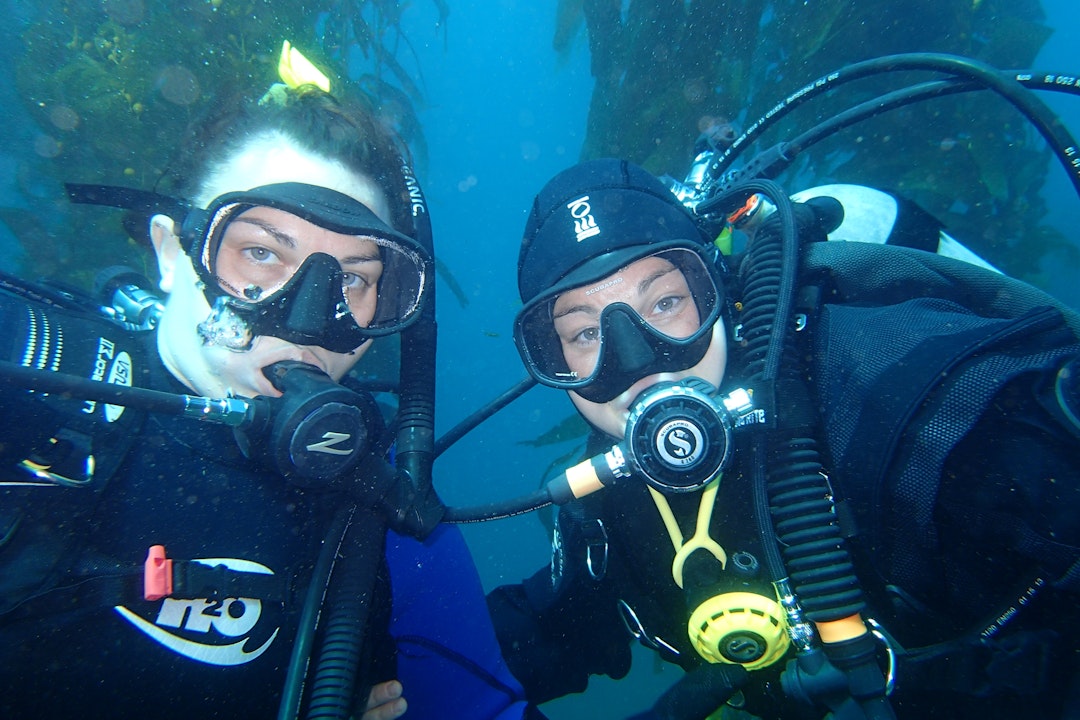
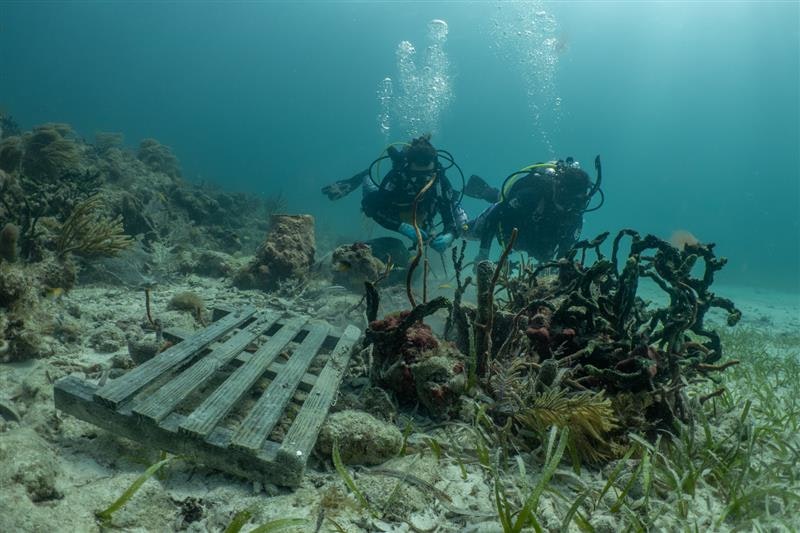
There are nearly 2 million women veterans in the U.S. – but many of the supports in place for the military community don’t adequately address their needs. The SRC aims to change that while accomplishing important work in the parks.
A recent project brought together veterans and professional divers, "Sea Sisters," the SRC, and Women Divers Hall of Fame and Wounded American Veterans Experience SCUBA, a nonprofit that introduces disabled American veterans to the therapeutic benefits of scuba diving. They teamed up to protect the submerged fishes, coral reefs, and ancient shipwrecks that lay beneath the aquamarine waters of the Florida Key's Biscayne National Park.
These teams of veterans and professional divers, "Sea Sisters," receive specialty training and mentorship while assisting NPS with management needs of recreational diving locations, making them more enjoyable for park visitors while preserving precious natural resources. In the summer of 2021, five veterans joined NPF staff for dives at nine different sites at Biscayne National Park, where they removed a total of 587 pounds of marine debris from the park's sea floor.

By the Numbers
-
587PoundsIn the summer of 2021 at nine spots in Biscayne, five veterans removed 587 pounds of marine debris from the sea floor.
-
80%Decrease in PTSD SymptomsA 2015 study showed that veterans who went scuba diving experienced a 80% decrease in their PTSD symptoms compared to their non-diving peers.
-
2Million Women VeteransThere are nearly 2 million women veterans in the United States. SRC aims to address these veterans' needs while accomplishing important work in our parks.
Sarah Von Hoene, of the National Park Service and a participant in the project, explains that these "marine debris" encompass a myriad of objects that are discarded in the ocean. The rubbish ranges from soda cans and car tires to monofilament fishing line, toilets, nets, or plastic bags, all of which can cause significant damage to coral reefs and marine life. According to Von Hoene, monofilament fishing line is particularly important to find and remove, as it can cut through soft corals and wrap around other marine creatures, like turtles and fish.
The group removed debris from sites throughout Biscayne National Park, including Horseshoe Reef, where they collected approximately 100 pounds of lobster trap pieces and abandoned line, as well as Pacific Reef, where they removed monofilament fishing line, an assortment of bottles and cans, and various other items. The team also visited the wreck of Alicia, part of the Biscayne National Park Maritime Heritage Trail. There, the group removed large amounts of monofilament fishing line and abandoned anchor line. In all, the team collected a total of 464 pieces of marine debris, along with 1,082 feet of line, wire, and rope.
Finding Healing, Independence, and New Careers 100 Feet Under Water
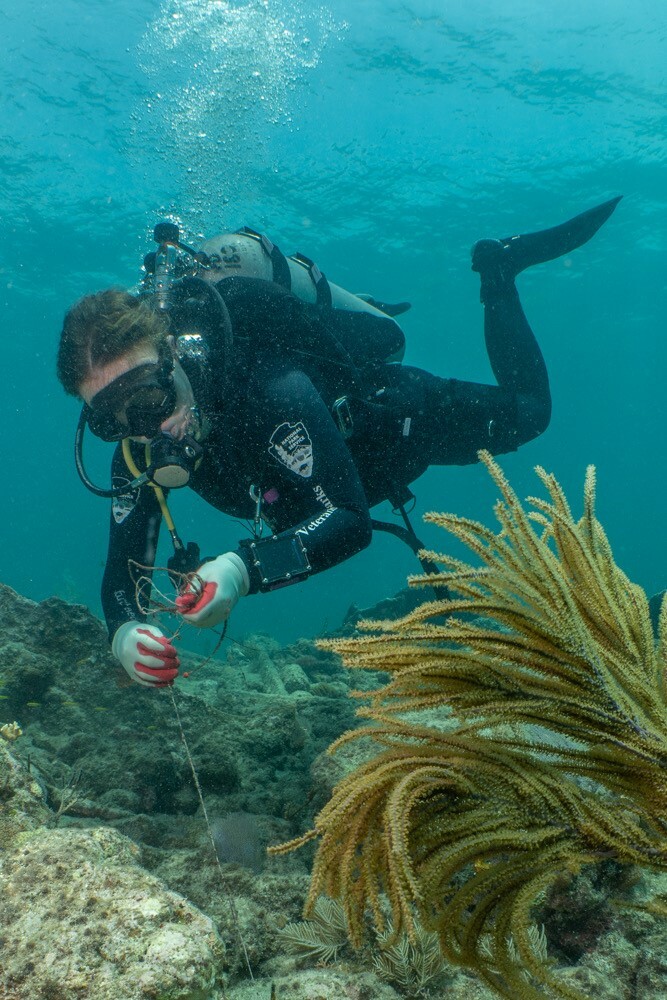
The scuba program is built to be mutually beneficial for the park waters and the crew of veterans. Scuba diving is linked with reducing symptoms of Post-Traumatic Stress Disorder (PTSD) and anxiety disorders. And several of the participating veterans discuss the therapeutic benefits of their experiences in this post from the National Park Service, including Esmerelda Ortega, who spent 13 years in the Marine Corps as a meteorologist and oceanographer.
“Participating in this project is providing me the opportunity to continue gaining the independence I lost and having a clear path to make a difference provides me a sense of accomplishment and advances my journey towards healing," Ortega said.
The diving expeditions at Biscayne National Park are part of ongoing efforts to introduce female veterans to "second careers of service" in our national parks. The endeavors of these divers are just one example of a long tradition of women transcending traditional boundaries and participating in far-reaching acts of national service: be that in the military or in the National Park Service.
Related Content
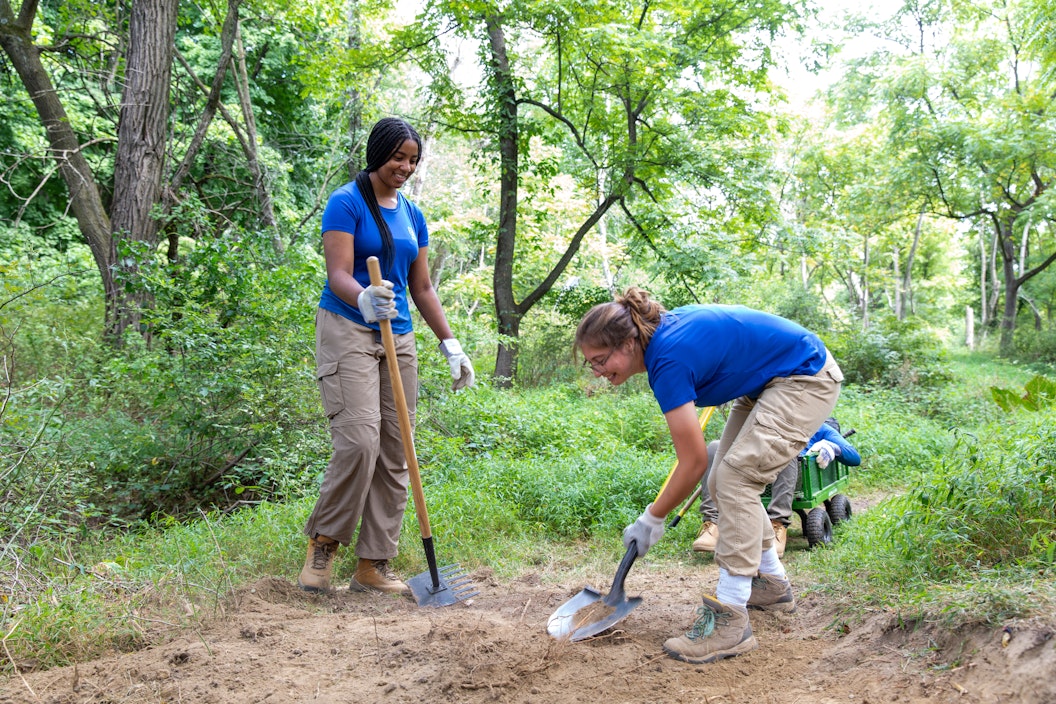
Through a collaboration between the Ramapough Luunape, local nonprofits, and NPF, a service corps crew is helping restore access to ancestral land along the Musconetcong Wild and Scenic River.
